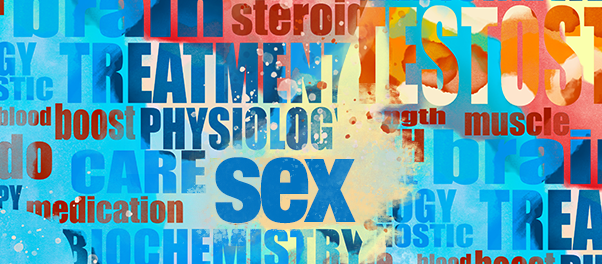- What is Psychedelic Therapy?
- The History of Psychedelic Therapy
- How Psychedelic Therapy Works
- The Therapeutic Use of Hallucinogens
- Psychedelic Drug Therapy Research and Legal Status
- Training and Certification for Psychedelic Therapists
- Psychedelics for Therapy: Clinical Considerations
- The Future of Psychedelic Therapy
- Additional Resources
What is Psychedelic Therapy?
Psychedelic therapy, also known as psychedelic-assisted psychotherapy, involves the use of psychedelic drugs, such as LSD, psilocybin (found in magic mushrooms), and MDMA, to facilitate psychological healing and growth. Unlike traditional drug therapies for mental illnesses, psychedelic therapy is typically administered in a controlled, therapeutic setting, often with preparatory and integrative psychotherapy sessions.
The History of Psychedelic Therapy
Psychedelic therapy originated in the 1950s, pioneered by Canadian researchers like Humphrey Osmond, primarily to treat substance abuse disorders with high-dose psychedelic sessions after preparatory psychotherapy. Despite initial enthusiasm and widespread academic interest, including significant contributions from figures like Stanislov Grof, who highlighted their transformative potential, research was heavily restricted during the 60s and 70s due to stringent drug laws.
The resurgence, known as the "psychedelic renaissance," began in the 1990s with renewed studies under controlled conditions, spearheaded by researchers like Dr. Rick Strassman. Today, the field is experiencing a boom, with numerous studies exploring the therapeutic benefits of psychedelics for mental health issues like depression, anxiety, and PTSD, supported by increasing public funding and evolving legal frameworks.
How Psychedelic Therapy Works
Psychedelic therapy works by inducing a heightened state of consciousness that can lead to altered perceptions, emotions, and thoughts. This altered state is believed to facilitate a more profound therapeutic process, enabling individuals to confront emotions and memories that are typically repressed or ignored in normal consciousness. Mental health professionals guide the patient through this experience, helping them process their thoughts and feelings in a supportive environment.
The Therapeutic Use of Hallucinogens
Substances like psilocybin and MDMA have been studied for their potential to significantly reduce symptoms of depression, PTSD, and anxiety, especially when other treatments have failed. The therapeutic effects are attributed to the substances' ability to disrupt negative thought patterns and provide profound emotional and spiritual insights, which can be transformative.
Psychedelic Drug Therapy Research and Legal Status
Research into psychedelic drug therapy has expanded over the years, with numerous clinical trials demonstrating promising results.
- MDMA-assisted therapy shows significant efficacy in treating PTSD. In a recent trial, 71.2% of participants receiving MDMA no longer met PTSD criteria, compared to 47.6% with placebo. This positions MDMA to potentially be the first psychedelic drug approved by the FDA for therapeutic use.
- Ketamine, a psychedelic, effectively treats mental health issues like depression and PTSD, particularly when other treatments fail. Clinical trials indicate that around 70% of patients achieve at least a 50% symptom reduction with ketamine. It also helps with alcohol use and trauma-related disorders, showing significant improvements in patients' conditions.
Institutions like Johns Hopkins University and the Multidisciplinary Association for Psychedelic Studies (MAPS) are at the forefront of this research, pushing the boundaries of how we understand and treat mental health disorders.
The global legal environment for psychedelic therapy is gradually liberalizing after decades of restrictions. Currently, ketamine is the only legal psychedelic therapy approved for clinical use. Meanwhile, other compounds such as psilocybin, LSD, and MDMA remain classified as Schedule 1 Controlled Substances with no accepted medical use. However, legal pathways exist for academic and clinical research on these substances. Notably, movements toward decriminalization and medical reclassification are gaining momentum, with significant progress in areas like Denver, Oregon, and Oakland. As changes occur at the state level, mental health professionals are encouraged to stay informed about the legal status in their regions.
Training and Certification for Psychedelic Therapists
For mental health professionals interested in becoming psychedelic therapists, specific training and certification are required. Training programs, such as those offered by MAPS, focus on therapeutic modalities related to MDMA-assisted therapy and others. These programs are designed to equip therapists with the knowledge and skills necessary to safely and effectively conduct psychedelic therapies.
Psychedelics for Therapy: Clinical Considerations
Psychedelic therapy is not suitable for everyone, and careful screening for psychological and medical conditions is essential. Additionally, creating a safe, supportive, and structured therapeutic environment is paramount for harnessing the therapeutic potential.
The Future of Psychedelic Therapy

As research deepens and public interest surges, the future of psychedelic therapy appears promising, poised to revolutionize mental health treatment. The growing body of clinical research indicates not only the efficacy of psychedelic compounds in treating a range of mental health disorders—including depression, PTSD, and anxiety—but also their potential in addressing deeply ingrained behavioral patterns and psychological issues.
Legal changes are already in progress, and the shift in policy is anticipated to persist, backed by positive research findings and public advocacy. This legal advancement, combined with ongoing educational initiatives, is likely to enhance the accessibility of psychedelic therapies and recognize them as valid treatments within mainstream healthcare. Furthermore, technological advancements are improving the precision and safety of these treatments. Innovations in dosing, delivery systems, and therapy protocols are enhancing the therapeutic experience, making it more controlled and replicable. As these technologies continue to evolve, they will enable a smoother integration of psychedelic therapy into conventional treatment models.
The incorporation of psychedelic therapy into conventional mental health care relies heavily on the training and certification of therapists. With rising interest in this area, an increasing number of professionals are seeking training in psychedelic therapy, leading to more qualified providers. This is essential for the safe and effective administration of psychedelic treatments to various patient groups.























